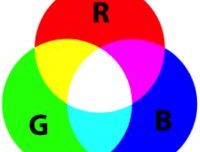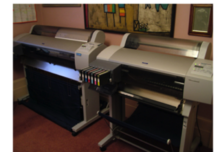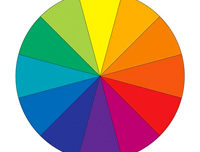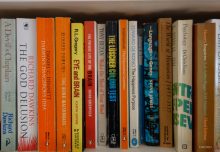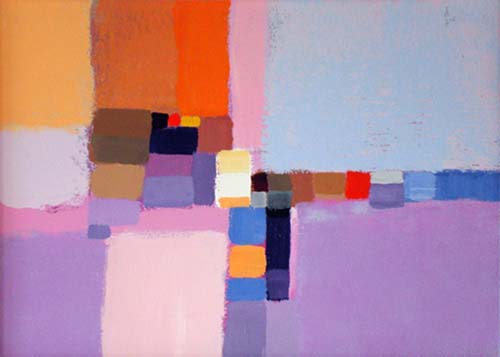
Abstract by Colin Ruffell
ABSTRACT ART AND NON-SUBJECTIVE ART
The subject of abstract art and non-subjective art came up again the other day as I was updating some descriptions on my websites. I found myself drawn to the phrase that I had used to explain myself as an abstract painter many years ago. The phrase that I had used to fend off my critic was ‘ abstract art is like music without words’. I don’t know where it came from.
Actually the similar concept of ‘frozen music’ is generally attributed to Goethe who was talking about architecture being like frozen music. Or music being liquid architecture. Abstract art came along later than Goethe. It seems more focused to liken abstract art to music.
Now we all experience musical songs that have words, and other music without words. Quite often there are parts of the latest hit record that has words and sections in between that are just gorgeous sounds. We hear the music and it has either a second layer of word meaning or not. Some good bits are just about the sounds.
And some music is totally without words. Think of most classical symphonies for example.
Abstract art is like classical music. Abstract art is all about the colours, patterns, textures, shapes, etc in a piece of visual art, without any subject. It is just about itself. A painting is either about something that we see or it is all about itself.
My Mum.
That is how I explained it to my Mum who was the one who queried my art college pictures when she saw them. She had been surprised and disappointed when I came home from College at the end of term and showed her my latest work. She had been expecting landscapes, animals, or portraits. She had been looking forward to seeing how much I had improved. But instead she thought that I had become deranged and deluded.
Up until that occasion my Mum had had no empathy for abstract art. And to be fair neither had I when I first went into Art College. But my eyes had been peeled. I had become enlightened. And so I had to try to share this road to Damascus moment with my Mum.
That was sixty years ago.
Since then, I explored abstraction for some years and later moved back to subjective painting. Now I use the insights and lessons learned to make pictures that are not just about the subject but are also very much about the abstract qualities of flat art as well.
Big names.
Who were the artists that made all the difference for me, and how did it happen?
In the 1960s the big names were American. Jackson Pollock, Mark Rothko, Sam Francis, Franz Kline, and many others. Pollock was the well known but ridiculed paint dripper. ‘Anyone can do that’. Rothko just made big empty blank fuzzy blocks. ‘Anyone can do that’. Sam Francis, ‘splodge splodge splodge’, and Franz Kline ‘just black lines’. Anyone can do those.
Road to Damascus.
We used to make student party trips up to London to visit exhibitions as part of our studies.
The large, quiet, under-visited room at the back of the Tate Gallery with the Rothko paintings was a very special place. That is where it happened for me. I was on my own. The other students were occupied in the busier parts of the gallery. I wandered into the Rothko room instead of doing what I was supposed to be doing . It was quiet. I waited. I didn’t know what to expect. Actually I didn’t expect anything to happen. But it did. Not suddenly but gradually over several minutes. I was aware of another dimension. These pictures are not about anything. They are about themselves.
This was before the Tate expanded and opened up Tate Modern. The Rothko’s are now rehoused in the new Tate Modern building in a room with more entrances and visitors. The magic solitary specialness is no more.
I wonder if anyone experiences their own ‘Road to Damascus’ moment in that room nowadays. I do hope so for their sake.
But …moving on from abstract back to subjective.
Cue for music. Try Beethoven 9th symphony. Listen to it all from the beginning. It is all abstract until the middle of the last movement…. Then suddenly in come the voices and words.
It is the last symphony that he composed.
*****************************************************

